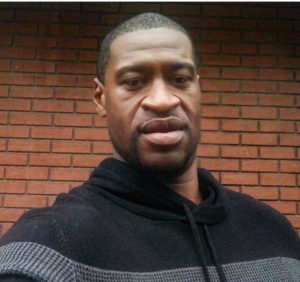Here we find ourselves returning yet again to the question of how we should talk with our children, especially our sons, about another horrifying murder of a black man at the hands of a police officer. What should we say to them about the death of George Floyd, and about the protests that have followed?
Children of All Ages:
- Comfort them. Hug them. Tell them that they are loved, they are worthy, that they matter, and that they are safe at home. That you are going to protect them with your love and your prayers and your advice as best you can.
- Limit media exposure, especially for the younger ones. Resist the temptation to keep the 24 hour news stations on constantly. The video of Floyd’s death is horrific, and watching it over and over can tremendously raise anxiety levels. The clips of people clashing with the police are troubling for young children to watch repeatedly as well.
- Try not to squash, dismiss or judge their feelings. It is a lot for them to take in and process (as it is for adults as well). Let them know that anger, sadness and fear are rational responses to Floyd’s death and to watching people get violently taken away by the police during a demonstration. And fear, sadness and confusion are rational responses to watching footage of rioting. Encourage them to talk about how they feel, if they are so inclined.
- Don’t insist that they talk: For some children, who are already coping with fears about the virus and the emotional drain of having to stay inside for several months, talking about this now may be too much for them to bear. Don’t judge your children who are not actively sharing in your outrage, or criticize them if they disagree with your perspective or don’t feel like engaging in a discussion about it.
- Remind them that police officers are not all bad. Tell them that there are bad police officers, and these were clearly bad cops. At least one of the cops has been arrested and charged with murder, and there are calls to arrest others. Let them know that not all police officers are bad, and that many support the protests. Tell them that police chiefs across America spoke out against the cops involved and called for their arrests. You can read about that here.
For Further Discussion with Older Children:
- Talk about the history of peaceful protests. Let them know that history shows that great change for Black America has come from peaceful protest movements. Here is a quick read on some of the more well known and effective ones. If they want to join a peaceful protest, make sure to read “Are Your Children Joining Protests? Here’s What Parents Need to Know”.
- Talk about what has led to the looting. People have been in isolation to stem the spread of COVID-19, which is disproportionately killing Black people. The paused economy has led to massive job losses, there is food insecurity and potential homelessness. We are midway through 2020 and we have already been made witness to the deaths of Ahmaud Aubrey, Breonna Taylor, and other unarmed Black people killed by police or people claiming state sanctioned authority. And now the nation watches as a white police officer intentionally and callously kills an unarmed and handcuffed Black man. The violently angry response to this, while hard to condone, has its roots in all that has come before. Comedian Trevor Noah eloquently discusses this in a clip found here that you should watch and share with your older children.
- Talk about the importance of voting. Calls for justice are calls for the people in power to do the right and just thing. Voting helps put people in power who will properly respond to those calls. The current leadership, which has worsened race relations in this country, will only be replaced if it is voted out. President Barack Obama, shared his thoughts about using this moment to bring about change in an Instagram post found here which you should share with your children. In it he talks about the importance of voting, not just for the Presidency or Congressional candidates, but for state and local candidates as well, as the local officials can do the most to reform the criminal justice system at the state and local levels. He concludes: “So the Bottom line is this: if we want to bring about real change, then the choice isn’t between protest and politics. We have to do both.” If your children are old enough to vote, please make sure they are registered!!
We will update this post with additional relevant resources as we find them. These conversations will continue over time with your children. May they be comforting, calming, productive and useful.






